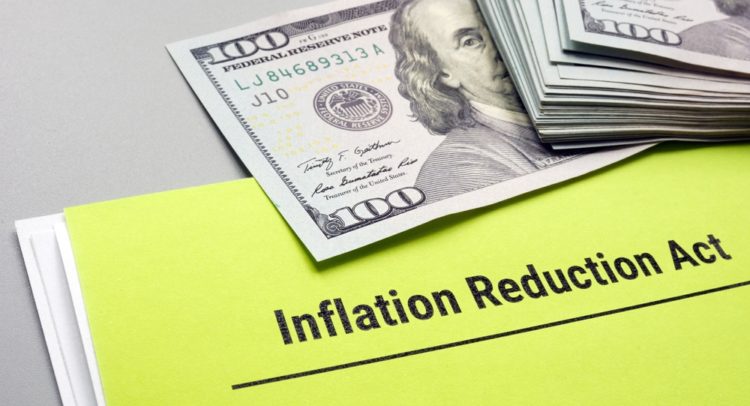After much delay, the U.S. Senate recently passed the $430 billion climate, healthcare, and tax bill called the Inflation Reduction Act. If signed into law, the Inflation Reduction Act aims to fight climate change and lower healthcare costs. The significant investments under the bill will be partly funded by a 15% minimum corporate tax imposed on large corporations with an average book income exceeding $1 billion over a three-year period.
This minimum tax provision is expected to impact companies like Nike (NYSE: NKE), Amazon.com (NASDAQ: AMZN), FedEx (FDX), and several other companies that have often been criticized for paying low or no federal income taxes by using many deductions and exemptions.
Inflation Reduction Act Aims to Address Tax Loopholes
Many large tax-avoiding corporations generally report much lower profits to the Internal Revenue Service for tax purposes compared to the book profits that they reveal to shareholders. As per a report released by the Institute on Taxation and Economic Policy (ITEP) in April 2021, at least 55 of America’s largest corporations didn’t pay any federal income tax in 2020.
The list includes Advanced Micro Devices (AMD), Archer Daniels Midland (ADM), FedEx, Nike, and Salesforce (CRM).
As per ITEP’s study, the 55 companies, which avoided paying taxes, generated a combined U.S. pre-tax income of $40.5 billion in 2020. ITEP estimates that these companies enjoyed total corporate tax breaks of $12 billion in 2020, including $8.5 billion in tax avoidance and $3.5 billion in tax rebates.
Reacting to the Senate’s passing of the Inflation Reduction Act, Amy Hanauer, ITEP’s Executive Director, stated, “Today we made remarkable progress for America’s tax and climate policy. The IRA [Inflation Reduction Act] reduces corporate loopholes, collects revenue from those who defy tax law, and devotes much of that revenue to greening our economy.”
In addition to the 15% minimum corporate tax, the Inflation Reduction Act would also impose a 1% excise tax on share buybacks.
Nike and Amazon Might Face Higher Tax Burden
ITEP’s April 2021 study revealed that athletic apparel and footwear giant Nike generated nearly $2.9 billion of U.S. pre-tax income in 2020 but didn’t pay any federal income tax. Instead, the company received a $109 million tax rebate. ITEP noted that Nike and several other companies used a tax break for executive stock options and the federal research and experimentation (R&E) credit to reduce their income taxes in 2020.
Meanwhile, amid soaring inflation and macro headwinds, the Street is cautiously optimistic on Nike. The stock has a Moderate Buy consensus rating based on 16 Buys, 10 Holds, and one Sell recommendation. At $128.87, the average price target implies 13.9% upside potential from current levels.

Meanwhile, in a February 2022 report, ITEP disclosed that if e-commerce giant Amazon had paid the statutory tax rate of 21% on its 2021 U.S. income without any tax breaks, then its taxes would have been over $7.3 billion. However, Amazon paid $2.1 billion in federal income taxes. ITEP noted that the company’s overall federal tax rate was just 5.1% on more than $78 billion of U.S. income reported over the past four years.
Currently, Wall Street is highly bullish on Amazon based on its leadership in the e-commerce space and its lucrative AWS (Amazon Web Services) cloud computing platform. The Strong Buy consensus rating for Amazon is backed by 39 Buys and one Hold. The average price target of $176.04 implies 23.4% upside potential from current levels.

Overall, if the Inflation Reduction Act is signed into law, it would increase Nike and Amazon’s tax burden and impact their profitability.
Will the Inflation Reduction Act Actually Reduce Inflation?
Although it is uncertain whether it’ll actually reduce inflation, the Inflation Reduction Act, when implemented, is expected to help the U.S. government force tax-avoiding companies to pay at least 15% of their earnings in taxes and fund climate and healthcare initiatives. While the 15% minimum tax is below the current 21% corporate tax rate in the U.S., it would still help in generating billions of dollars in government revenue over the next decade.
Indeed, the Joint Committee on Taxation currently expects the 15% minimum tax provision to raise about $222 billion over a period of 10 years.
















